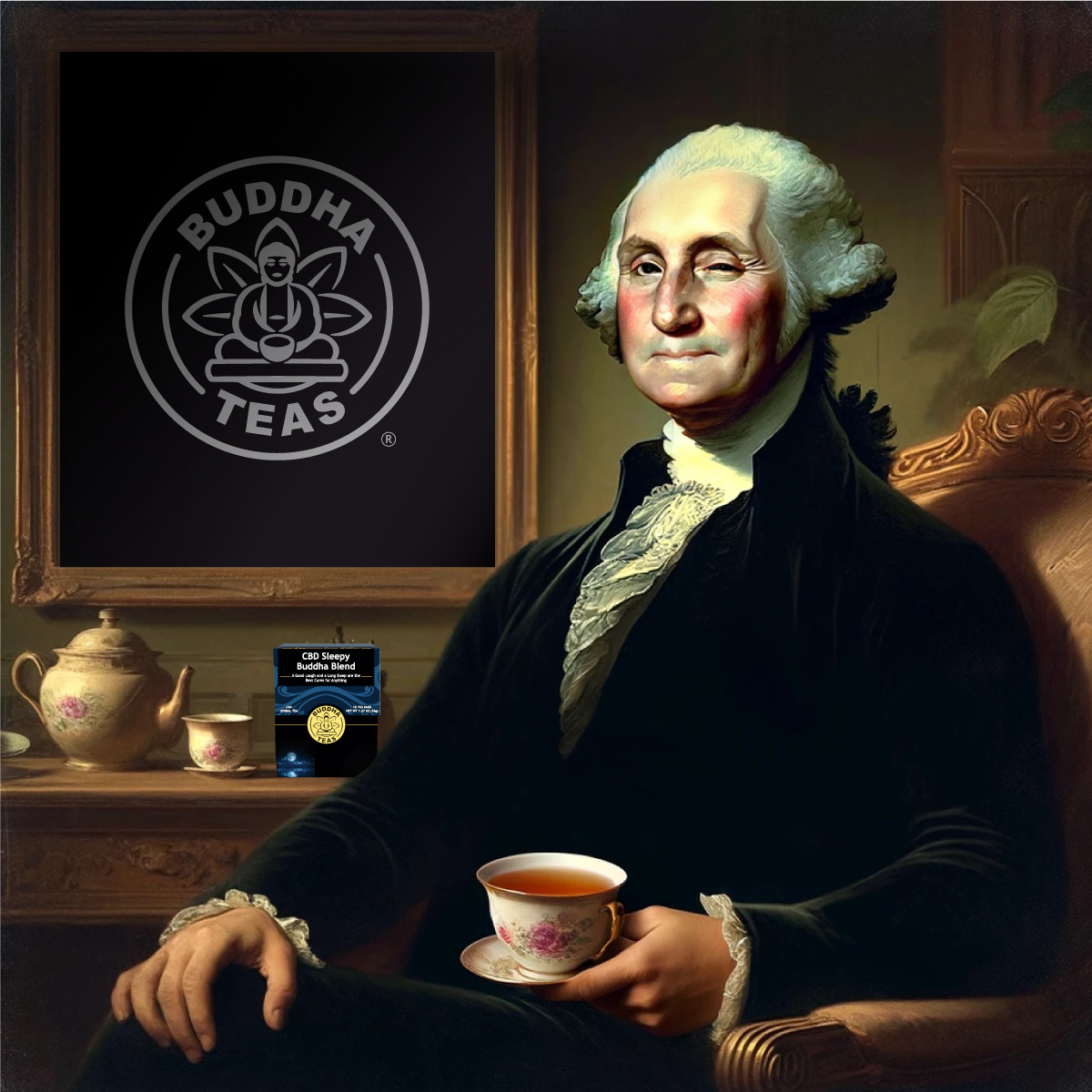Tea in the Oval Office:
The Top 5 Tea-Drinking Presidents
As we steep ourselves in the history of American presidents this February, it's fascinating to discover how tea, a simple yet profound beverage, has found its way into the routines and rituals of the nation's highest office. From ceremonial meetings to personal moments of reflection, tea has been a constant companion for many of America's leaders. Let's explore the top 5 tea-drinking presidents and how their love for this ancient brew reflects both personal taste and cultural significance.
1. George Washington:
A Founding Father's Fondness for Tea
Despite the Boston Tea Party's protest against British taxes on tea, George Washington, a man of refined tastes, enjoyed his tea. His meticulous expense accounts show orders for fine teas, including Green and Bohea, a type of black tea. Washington's appreciation for tea reflects the beverage's status among the colonial elite, signifying sophistication and a connection to the broader British Empire, even as he led the fight for American independence.
Interesting Facts: Did you know?
- In 1799, George Washington became the only former president to own America's largest whiskey distillery, showcasing his diverse entrepreneurial spirit.
- His groundbreaking farewell address in 1796 wasn't spoken aloud but published, revolutionizing presidential communication.
- Pioneering the peaceful transfer of power in 1789, Washington set a democratic precedent still followed over two centuries later.
- Washington's unanimous elections by the Electoral College in 1789 and 1792 underscored his unparalleled national esteem.
- After surviving smallpox in his youth, Washington championed the Continental Army's inoculation in 1777, a decisive public health move during the Revolutionary War.
2. Thomas Jefferson:
A Renaissance President's Tea Legacy
Thomas Jefferson's affinity for fine foods and wines extended to tea, reflecting his broad appreciation for the finer things in life. His time in France as American Minister deepened his culinary tastes, including his preference for fine teas, which he enjoyed and served at Monticello.
Interesting Facts: Did you know?
- An accomplished violinist, Jefferson serenaded guests at Monticello, blending his love for music and social gatherings.
- After the 1814 fire, his sale of personal books in 1815 helped restock the Library of Congress, showcasing his commitment to American scholarship.
- His role as Minister to France (1785-1789) not only influenced American diplomacy but also expanded his palate and cultural appreciation.
- Initiated the Lewis and Clark expedition in 1803, demonstrating his vision for American exploration and scientific inquiry.
- Drafted the Virginia Statute for Religious Freedom, a precursor to the First Amendment, illustrating his deep belief in personal liberties.
3. John Adams:
A Diplomat's Devotion to Tea
John Adams, a key figure in the American Revolution, maintained a disciplined tea habit, symbolizing his connection to both British culture and the emerging American identity.
Interesting Facts: Did you know?
- Advocated for the Constitution's creation, strengthening the fledgling nation's governance framework.
- His presidency (1797-1801) set pivotal early American foreign policy precedents.
- Instrumental in drafting the Declaration of Independence, advocating fiercely for liberty.
- His efforts in diplomacy with France averted potential conflict, preserving peace.
- Fathered John Quincy Adams, ensuring his legacy extended into future American leadership.
4. Franklin D. Roosevelt:
A New Deal for Tea Enjoyment
Franklin D. Roosevelt, steering the nation through the Great Depression and World War II, also found solace in the ritual of tea, aligning with his vision for an America rooted in community and resilience.
Interesting Facts: Did you know?
- Launched the New Deal, fundamentally transforming the American economy and social safety net.
- Battled polio from 1921, showcasing immense personal resilience that inspired a nation.
- Led the Allied powers to victory in WWII, setting the stage for the modern era.
- Used fireside chats to effectively communicate and comfort American families during crises.
- Elected to an unprecedented four terms, reflecting his enduring legacy and leadership.
5. John F. Kennedy:
Camelot's Contribution to Tea Time
John F. Kennedy, embodying youthful energy and a new era of American vision, also embraced the tradition of tea, aligning with his image of innovation and forward thinking.
Interesting Facts: Did you know?
- Launched the Peace Corps in 1961, fostering global goodwill and volunteerism.
- Spearheaded the American space race, setting the ambitious goal of landing a man on the moon.
- Advocated for civil rights, laying the groundwork for future legislative achievements.









